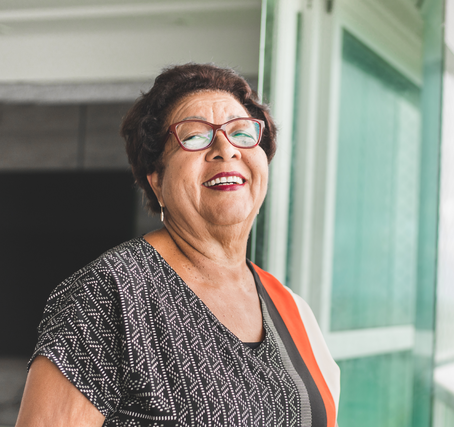HUD Permits Alternatives to Resident Meetings for RAD
On September 18, HUD’s Office of Multifamily Housing published a joint notice with HUD’s Office of Public and Indian Housing, titled Rental Assistance Demonstration (RAD) – Supplemental COVID-19 Guidance.
Under regular circumstances, the Rental Assistance Demonstration (RAD) requirements stipulate resident meetings prior to conversion; they also require that PHAs and owners submit documentation of the meetings to HUD, and that residents have the opportunity to respond and comment to conversion plans during the resident meetings.
The COVID-19 pandemic has disrupted the process of resident feedback during RAD. Early during the pandemic, HUD’s Multifamily Housing COVID-19 FAQs discussed technology options to conduct remote resident meetings for RAD; HUD’s new Housing Notice provides guidance on conducting pandemic-adapted resident meetings, in particular for residents with “limited access to or acuity with technologies.”
RAD Supplemental Guidance for COVID-19
HUD’s supplemental RAD guidance for COVID-19 states that to reduce the need for in-person contact, PHAs and owners can inform and consult with residents individually or in small groups, in addition to using technology to meeting with residents remotely. The alternative methods can be used either until the end of the presidentially-declared emergency, or until the end of the calendar year, whichever is later.
The following criteria apply to any alternative resident engagement:
- Proactively outreach to residents, informing them of an opportunity for a one-on-one or small group meeting, which could be in-person or by phone or other technology;
- Effectively convey required and relevant information to all residents, which may include individual meetings or calls with residents, advanced distribution of flyers or other materials to resident mailboxes or doors;
- Create an accessible vehicle for resident comments and questions. Consideration of accessibility should take into account the technology and resources available to residents;
- Provide residents an accessible vehicle for access to comments and questions submitted by others and the PHA’s or Owner’s response;
- Provide residents with a means to ask additional questions related to the conversion;
- Accommodate the needs of persons with disabilities or with limited English proficiency (LEP); and
- Ensure documentation of the date of communication with residents and the names of participating residents.
According to the Notice, “Given that alternative forms of communication … on their own cannot replicate the benefits of a group resident meeting, it is important that PHAs [and owners] err on the side of over-communicating and providing multiple venues for questions and comments.” Owners do not need HUD approval for specific communication strategies.
HUD hosts Webinar on new RAD Notice
To answer questions about the COVID-19 Supplemental Guidance for the Rental Assistance Demonstration, HUD hosted a webinar on September 22 featuring HUD’s Office of Recapitalization, which oversees the Rental Assistance Demonstration (RAD) program, including the newly-authorized RAD for PRAC.
On the webinar, HUD staff described the reasons for authorizing small group and individual resident meetings in place of large group meetings. According to HUD, several PHAs and owners undergoing a conversion were concerned with mitigated the risk of COVID-19 spread while fulfilling RAD requirements for resident meetings. In response to these concerns, HUD developed two tools: HUD Multifamily Housing’s FAQs on COVID-19 (including an overview of alternatives to resident meetings), and Notice H-2020-09 issued on Friday.
The first tool (FAQs) allowed for remote meetings using technology; the second tool (the new Notice) allowed for small group and individual meetings to overcome inquities in technology access and use among residents. In particular, HUD staff during the webinar stressed the importance of preserving the “spririt and benefits of large group in-person meetings,” but acknowledged that pandemic-adjusted approaches are “not perfect.” HUD staff reminded owners to accomodate residents with disabilities or Limited English Proficiency (LEP) as they utilize alternate methods of meeting with residents, including technology.
During the webinar, HUD staff also responsed to questions that LeadingAge posed on behalf of members:
- Resident Participation: Regarding documentation of alternate approaches to resident meetings, HUD stated that there is no requirement for 100% of residents to participate; however, a good faith effort should be made to proactively reach out to residents and to provide options for comments and responses.
- COVID-19 Funding: Regarding CARES Act funds for PRAC properties converting under RAD, HUD staff stated that although they are just in the beginning stages of converting the first PRACs, they do not anticipate the need for specific COVID-19 funds for converting properting; in addition, HUD anticipates being able to fully find Section 8 HAP contracts of converted PRAC properties, even if there are reductions in tenant rent.
During the webinar, HUD staff also covered the components of the new Notice related to CARES Act funds for participating PHAs.
HUD Multifamily Housing FAQs on COVID-19 and Resident Meetings
In HUD’s MFH FAQs for COVID-19, HUD staff added information on resident meetings in early April 2020; the FAQs describe the balance needed to keep residents informed while following CDC and local health directives:
“The health and safety of residents, PHA and Owner staff, and other program partners is paramount…It is still critical for PHAs and owners to keep residents informed about any changes to their housing, their rights, and the timing of key events related to the conversion and for residents to have the opportunity to provide comments as required at different stages of a RAD conversion.”
The FAQs state that “In lieu of community meetings held in common areas, PHAs and owners may hold meetings remotely using videoconferencing or teleconferencing technology.” Remote meetings can only be utilized by owners if property staff can:
- Accept and respond to answers to questions submitted during the meeting;
- Maintain an attendance log in order to track if residents are able to participate successfully;
- Accommodate the needs of persons with disabilities or with limited English proficiency (LEP) through the meeting format. In selecting the host technology, PHAs must ensure they can comply with Section 504 of the Americans with Disability Act; and
- Provide residents with a follow-up notice after the meeting with a summary or reproduction of presented information and a means to ask additional questions related to the conversion.
The FAQs go on to say that beyond remote resident meetings, owners should provide opportunities for ongoing resident engagement: “Beyond the required resident meeting and comment period, HUD recommends that PHAs and owners develop an alternative communication plan that is sustainable for at least 8 weeks or more.”
Similar to small group or individual meetings, providers do not need HUD approval on alternate approaches to resident meetings. Questions can be directed to HUD’s Office of Recapitalization (email rad@hud.gov for information about RAD for Public Housing; email rad2@hud.gov for information about RAD for Multifamily Housing).

Most Recommended
October 15, 2025
 Shutdown Week Three: Impact of Ongoing Closure on Affordable Housing
Shutdown Week Three: Impact of Ongoing Closure on Affordable Housing
January 27, 2026
Fiscal Year (FY) Funding 2026
October 07, 2025
Immigrant Workforce Matching Program Brings Workforce Relief
Recently Added
January 27, 2026
CBO: Pandemic's Impact on U.S. Household Income Inequality
January 27, 2026



